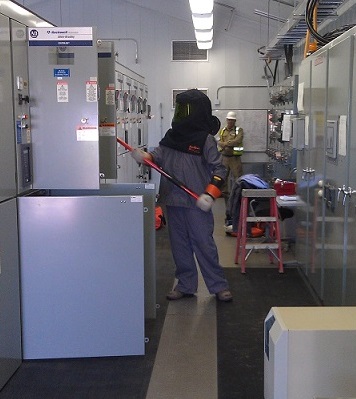Working safely means working with the right equipment. NFPA 70E standards and OSHA have very clear rules about using personal protective equipment (PPE) when dealing with electricity.
 Electrical PPE generally includes:
Electrical PPE generally includes:
There are five different levels of PPE. Each level dictates which equipment is necessary to remain safe based on energy usage. However, it never hurts to be more prepared. The materials used in PPE materials matters as well. Rubber is a common insulator for gloves and shoes but is impractical for clothing. Wearing the right equipment can literally save your life.
Electrical hazards are one of the leading causes of workplace injuries. A lack of proper PPE can increase the severity of the injury. With NFPA 70E training from T/C Risk Management, your workers will know when and where to use each piece of protective equipment.
Electrical training does more than protect workers: it can prevent OSHA citations and violations.
It happens all the time: a worker just needs to do one short task and they decide to skip putting on protective equipment. It’s understandable. Taking ten minutes to put on safety glasses, a hard hat, and a dozen other items is seen as a waste of time for a 30 second task. Yet it only takes a moment for a preventable accident to happen.
T/C Risk Management electrical safety training covers the “why” along with the “how”. We teach qualified and unqualified employees how to correctly wear personal protective equipment per NFPA 70E standards.